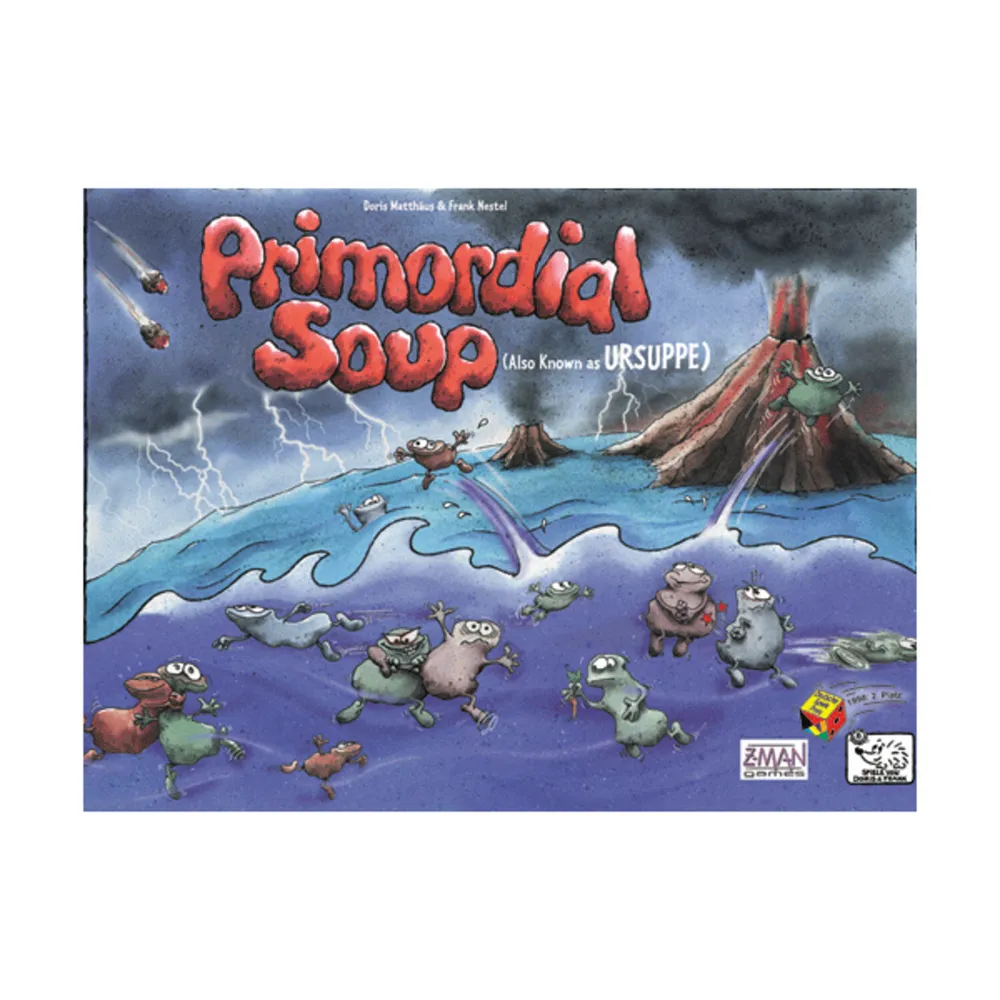Primordial Soup (1997)
Primordial Soup
Primordial Soup is a board game designed by Doris Matthäus & Frank Nestel and published by Z-Man Games. The game was first published in 1997 in Germany under the name Ursuppe and won the 2nd prize in the 1998 Deutscher Spiele Preis. The game revolves around each player controlling a species of primitive amoeba drifting through the primordial soup. Players guide their amoebas to move, eat, and procreate using 10 biological points received each turn. They can also evolve their species by buying gene cards, which provide amoebas with abilities such as faster movement. The game ends when a player reaches 42 points or when the last environment card is drawn, usually after 5-10 rounds, lasting 1-2 hours.
Game Components of Primordial Soup
How To Setup Primordial Soup
Setting up Primordial Soup involves distributing the amoebas, biological point tokens, damage markers, foodstuff cubes, and score markers. Each player chooses a set of colored amoebas and places them on the board. The gene cards, environment cards, and other components are prepared according to the rules. The setup time is approximately 10 minutes.
Gameplay Mechanics and Game Objective
Player Experience
Primordial Soup offers a dynamic and interactive experience where players must balance the survival and evolution of their amoeba species. The game requires strategic thinking, adaptability, and planning, as players navigate a self-balancing ecosystem where the survival of one species depends on the excreta of others. The game is known for its fun and challenging gameplay, with a mix of strategy and adversarial dynamics.
Pros
Cons
Personal Thoughts on Primordial Soup
Primordial Soup is an excellent choice for players who enjoy strategy games with a scientific twist. It is ideal for those who appreciate games that require adaptability, strategic planning, and a bit of luck. The game is suitable for players aged 12 and up and is a great addition to any collection for those interested in biology-themed games or unique strategy mechanics. However, it may not be the best fit for players looking for a quick, casual game, as it typically lasts around 90 minutes to 2 hours.
We are supported by our audience. When you purchase through links on our site, we may earn an affiliate commission, at no extra cost for you. Learn more.

